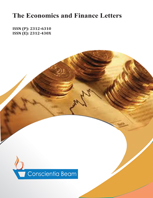Effect of foreign direct investment on wage inequalities between skilled and unskilled workers in Vietnam
DOI:
https://doi.org/10.18488/29.v10i1.3254Abstract
Foreign direct investment (FDI) can bring many benefits to the host country's economy, but not all citizens in that country benefit equally. This study aimed to analyze the impact of FDI on wage inequality between skilled and unskilled workers in Vietnam. The study used an econometric model, applying systematic generalized method of moments (GMM) estimation to panel data from 63 Vietnamese provinces in the period from 2010 to 2018 to analyze the impact of FDI on wage inequality. The empirical results from the econometric models using systematic GMM showed that FDI tends to increase wage inequality in localities. The results of this study suggest that to ensure sustainable development, policies to attract and use FDI need to be linked with social security policies and efforts to reduce wage inequality. Based on the research results, the study proposes some policy implications to minimize the negative impact of FDI on wage inequality in Vietnam.

